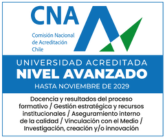Meier, Sebastian(a), Curaqueo, Gustavo(a), Khan, Naser(b) (c); Bolan, Nanthi(b) (c), Rilling, Joaquin (a), Vidal, Catalina(a), Fernandez, Natalia(d), Acuna, Jacquelinne(a), Gonzalez, Maria-Eugenia(e), Cornejo, Pablo(a), Borie, Fernando(a)
(a) Scientifical and Technological Bioresource Nucleus, BIOREN-UFRO, Universidad de La Frontera, Temuco, Chile.
(b) Centre for Environmental Risk Assessment and Remediation (CERAR), University of South Australia, Mawson Lakes, Australia.
(c) School of Natural and Built Environments, University of South Australia, Mawson.
(d) Laboratorio de Microbiología Aplicada y Biotecnología, Centro Regional Universitario Bariloche, Universidad Nacional del Comahue – INIBIOMA – CONICET, San Carlos de Bariloche, Argentina. (e) Núcleo de Investigación en Energías Renovables, Dirección de Investigación,Universidad Católica de Temuco, Temuco, Chile.
JOURNAL OF SOILS AND SEDIMENTS
Volumen: 17(5) Páginas: 1237-1250
DOI: https://doi.org/10.1007/s11368-015-1224-1
Fecha de publicación: 06 de Agosto de 2015
Abstract
Purpose Copper (Cu) contamination has been increasing in land ecosystems. Biochars (BCs) and arbuscular mycorrhizal fungi (AMF) are known to bind metals, and metallophyte can remove metals from soils. Will BC in combination with AMF contain the Cu uptake by a metallophyte growing in a metal-contaminated soil? The objective of this study was to investigate the effects of BCs on the Cu immobilization and over soil microbial communities in a metal-contaminated soil in the presence of AMF and metallophyte.



